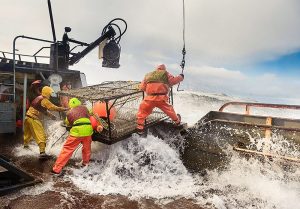What is Maritime Law?
 Maritime law, also known as maritime injury law or admiralty or law, is a specialized area of law that deals with legal issues arising from accidents, injuries, and disputes that occur on navigable waters, including seas, oceans, rivers, lakes, and other waterways. This body of law encompasses both civil and criminal matters related to maritime activities and serves to regulate and govern maritime commerce and navigation.
Maritime law, also known as maritime injury law or admiralty or law, is a specialized area of law that deals with legal issues arising from accidents, injuries, and disputes that occur on navigable waters, including seas, oceans, rivers, lakes, and other waterways. This body of law encompasses both civil and criminal matters related to maritime activities and serves to regulate and govern maritime commerce and navigation.
Key aspects of maritime injury law include:
- Jones Act Claims: As mentioned earlier, the Jones Act is an essential component of maritime injury law. It allows seamen who suffer injuries while working on vessels engaged in maritime commerce to seek compensation for damages and medical expenses from their employers if negligence is proven. This law provides unique protections for seafarers injured in the course of their employment.
- Longshore and Harbor Workers’ Compensation Act (LHWCA): This federal law provides benefits to longshore workers, harbor workers, and certain other maritime employees who are not covered by the Jones Act. The LHWCA provides compensation for work-related injuries and occupational diseases occurring on the navigable waters of the United States or adjoining areas used for loading, unloading, repairing, or building vessels.
- Maintenance and Cure: This doctrine is a fundamental principle in maritime law that requires shipowners to provide “maintenance” (daily living expenses) and “cure” (medical treatment) to seamen who become ill or injured while in the service of the vessel, regardless of fault. This obligation extends until the seaman reaches maximum medical improvement.
- Unseaworthiness Claims: In addition to negligence claims under the Jones Act, seamen can also pursue unseaworthiness claims against shipowners. Unseaworthiness refers to a vessel’s condition or equipment that renders it unfit or unsafe for its intended use. If a seaman is injured due to an unseaworthy condition, the shipowner may be liable for damages.
- Limitation of Liability Act: This federal law allows shipowners to limit their liability to the value of the vessel and its cargo in cases where a maritime accident causes significant property damage or loss of life.
- Collision and Allision Cases: Maritime injury law also deals with cases involving collisions between vessels or collisions between a vessel and a fixed object (allision). Liability for such incidents may be determined based on principles of negligence, fault, and navigation rules.
It’s important to note that maritime injury law can be complex and may involve a combination of federal and state laws, depending on the circumstances and location of the incident. If you or someone you know is involved in a maritime injury case, it’s crucial to seek legal advice from attorneys experienced in maritime law to ensure the proper application of relevant statutes and regulations.
The Stacey & Jacobsen, PLLC team understands how maritime accidents happen and how they could have been prevented. They are dedicated to getting fair compensation for clients. If you have lost a loved one in a maritime accident, call today for a free consultation about your case.
 Maritime Injury Law Blog
Maritime Injury Law Blog

